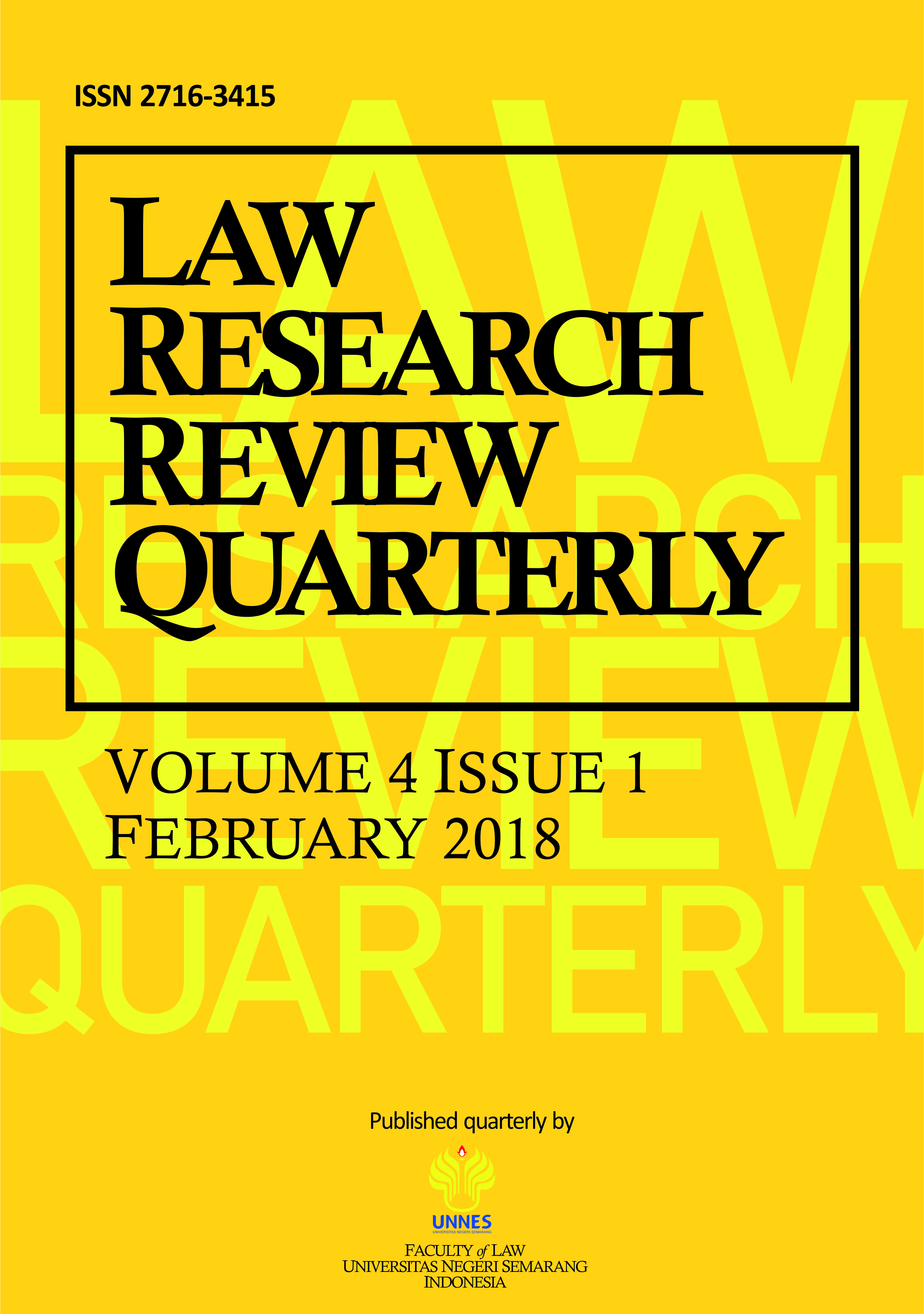Gogoli's Punishment as a Renewal of National Death Penalty Sanctions against Immigrants Committing Narcotics Criminal Acts in the Development of Criminal Law in Indonesia (Study Period of the Buton Sultanate)
Main Article Content
Abstract
At present, the Indonesian state is experiencing an unresolved narcotics problem. Various efforts to eradicate and prevent narcotics have been made, but they have not caused a deterrent effect in law enforcement. There are difficulties in eradicating at its roots, it is one of the obstacles experienced by our law enforcement officers, in this study using a normative juridical research method with a historical approach, a conceptual approach that has examined traditional criminal sanctions that were in force during the Buton Sultanate. and obstacles in the implementation of gogoli punishment. The results of this study indicate that the renewal of the national criminal law in relation to criminal sanctions can be sourced from customary law in effect in the Sultanate of Buton as intended is the gogoli punishment, while the concept of imposing a gogoli sentence is a rope wrapped around the body of the person sentenced and pulled in a way that the opposite direction until the endurance of his body lost or death, the sentence is included in the type of death sentence, this is relevant to immigrants who commit narcotics crime in Indonesia who have been sentenced several times to death sentence but apparently until now it still has no effect, the authors have the hope that the sentence can be applied nationally given the narcotics crime that occurred in almost all regions and will damage the morale of the nation's children today.
Article Details
All writings published in this journal are personal views of the authors and do not represent the views of this journal and the author's affiliated institutions. Author(s) are retain the copyrights of the Article. However, before publishing, it is required to obtain written confirmation from Author(s) in order to ensure the originality (Author Statement of Originality). The statement is to be signed by at least one of the authors who have obtained the assent of the co-author(s) where applicable.This work licensed under a Creative Commons Attribution-ShareAlike 4.0 International (CC BY-SA 4.0)
References
Andi Hamsyah dan A. Sumangelipu (1985). Pidana Mati di Indonesia, Jakarta: Ghalia Indonesia.
Azis Syamsuddin (2014). Tindak Pidana Khusus. Jakarta: Sinar Grafika.
Barda Nawawi Arief. (2011). Pembaharuan Hukum Pidana Dalam Perspektif Kajian Perbandingan. Bandung: Citra Aditya Bakti.
Bibu Kari (1993). Hukuman Gogoli Dimasa Kesultanan Buton, Skripsi, Buton.
Ikram, Achadiyati. (2001). Katalog Naskah Buton Koleksi A.M.Zahari. Jakarta: Yayasan Obor Indonesia.
Niampe, La. (2009). Undang-Undang Buton Versi Muhammad Idrus Kaimuddin, FKIP UNHALU.
Sudarto. (2010). Kapita Selekta Hukum Pidana. Bandung: Alumni.
Zahari, A.M. (1978). Sejarah dan Adat Fiy Butuuni. Jakarta: Departemen Pendidikan dan Kebudayaan.
--------------. (1984). Masalah Hukum Perdata Adat Wolio Buton. Jakarta: Departemen Pendidikan dan Kebudayaan.
Zuhdi, Susanto. (1997). Kerajaan-Kerajaan Tradisional di Sulawesi Tenggara; Kesultanan Buton. Jakarta: Departemen Pendidikan dan Kebudayaan.
Sumber Online
http://smslap.ditjenpas.go.id/public/custom_r/current/method/monthly/idmr/766f6dc0-205e-105e-a298-303930323539. Diakses 22 April 2018.
